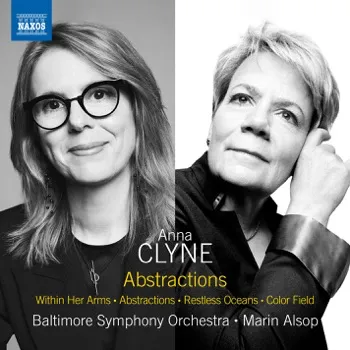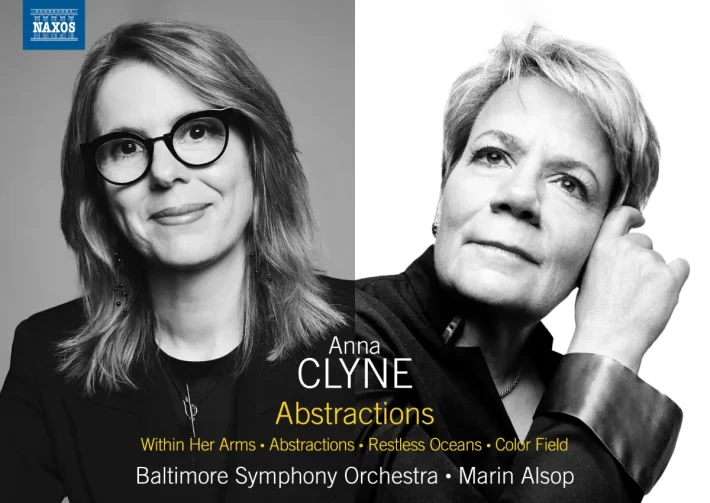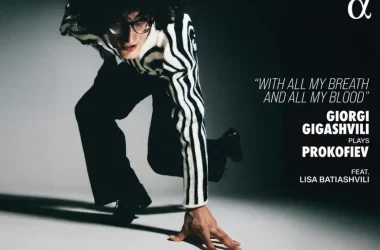Anna Clyne remains an accessible voice among contemporary composers: her materials are largely tonal, her rhetoric direct, and her ear for color assured. This album plays to those strengths while showing how she organizes short, highly focused ideas into persuasive spans.

The anchor is Within Her Arms, the composer’s best-known piece and the disc’s longest. Written following her mother’s death, it invites the Barber Adagio comparison for its steady intensification and collective breath, yet Clyne’s scoring for 15 strings is more individuated: solo lines constantly surface from the texture. The closing pages thin and soften—quintet, then quartet, trio, and finally duo—an unobtrusive dramatic device that registers with clarity in this performance.
The five-movement Abstractions takes visual art as catalyst. Naxos doesn’t reproduce the artworks, so listeners will have to seek them out; regardless, the music stands on its own. Clyne is descriptive without surrendering to formlessness: each movement relies on repeated cells and rhythmic ostinati while the orchestration grows more varied.
The opener, “Marble Moon” (after Sara VanDerBeek), feels the most convincingly “painterly,” its gleam and suspension neatly caught by the strings and winds. “Seascape,” after Hiroshi Sugimoto’s black and white photograph, tips toward Impressionist lineage (Debussy and Ravel inevitably come to mind) without quite matching their harmonic iridescence. “River,” inspired by Ellsworth Kelly’s lithographs, is more tempestuous, its churning patterns well balanced here so that detail is not lost. The closing movement, after Brice Marden’s “3,” threads a lattice of lines in a manner that will sound familiar to admirers of Philip Glass.

Ana Clyne (image: © Victoria Stevens)
Restless Ocean is another compact, high-impact essay. Echoes of Glass-like propulsion again arise, yet Clyne’s theater is more tactile: instrumental techniques are varied, and the players join in vocalizations and coordinated foot stomps. Here and throughout the performances, Marin Alsop and the Baltimore Symphony Orchestra keeps it tight and vivid rather than flashy, and the engineers give enough air around the effects for them to register as musical events, not gimmicks.
The triptych Color Field draws on Rothko and on Scriabin’s color–pitch associations. Even without synesthesia, you hear the organizing idea: three contrasted panels with clearly differentiated palettes and timbres. The pieces are deftly scored, though they don’t cohere quite as strongly as the best pages in Abstractions.
Across the program, Clyne shows a sure hand at pacing, patterning, and timbral blend; climaxes feel earned, and transitions are clean. Her craft with short spans is undoubted. What remains intriguing is how she might extend this language across a truly large-scale form (her larger solo concertos were also built around several short movements.) A full symphony perhaps? For now, Alsop and the Baltimore Symphony Orchestra offer committed advocacy in excellent sound.

Album Details |
|
|---|---|
| Album name | Anna Clyne – Abstractions |
| Label | Naxos |
| Catalogue No. | 8574620 |
| Artists | Baltimore Symphony Orchestra, Marin Alsop |



















